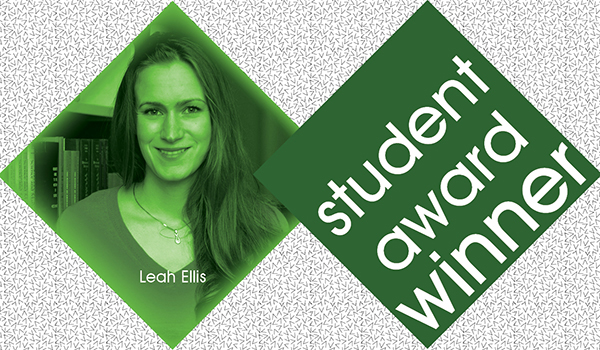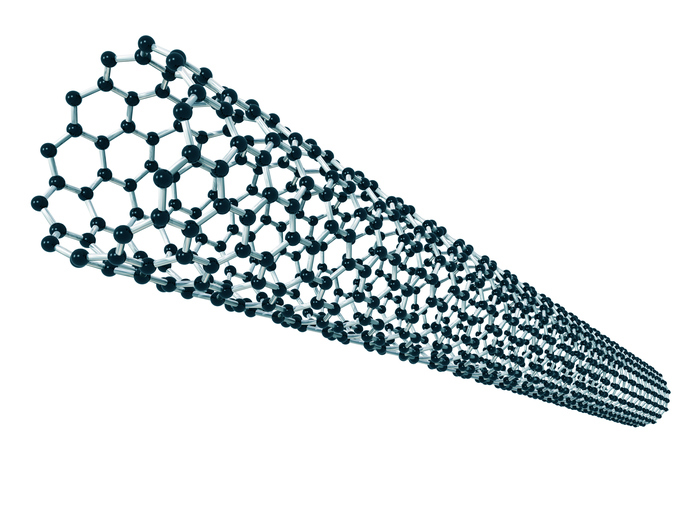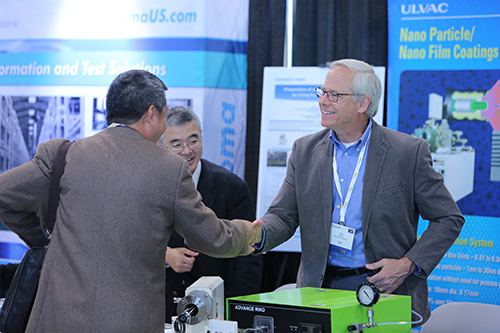 Each year, the ECS Canada Section recognizes a deserving PhD student from a Canadian university for academic achievements in our multi-disciplinary fields though the Canada Section Student Award. The award was established in 1987 to recognize promising young engineers and scientists and to promote careers in electrochemistry and solid state science and technology. Recipients receive a $1,500 (CAD) prize.
Each year, the ECS Canada Section recognizes a deserving PhD student from a Canadian university for academic achievements in our multi-disciplinary fields though the Canada Section Student Award. The award was established in 1987 to recognize promising young engineers and scientists and to promote careers in electrochemistry and solid state science and technology. Recipients receive a $1,500 (CAD) prize.
Leah Ellis’ broad academic interests include surface analysis, materials science, and green chemistry. She obtained her Bachelor’s (2011) and Master’s (2013) degrees in chemistry at Dalhousie University in Halifax, Canada, studying alloy-based anode materials for sodium-ion batteries with Dr. Mark Obrovac. During this period, she was awarded an internship at Tesla’s research facility in Palo Alto, California.
Upon completion of her M.Sc., Leah spent one year as an intern at E-One Moli Energy in British Columbia, Canada, working on lithium-ion cell testing and development. Before commencing her PhD, she crossed the continent of Africa on a bicycle. Presently, Leah is completing her PhD, under the supervision of Dr. Jeff Dahn at Dalhousie University. Her research focuses on increasing the energy density, extending the lifetime, and reducing the cost of lithium-ion batteries, especially for automotive and grid storage applications.


 Carbon dioxide accounts for over
Carbon dioxide accounts for over  The introduction of purified carbon nanotubes appears to have a beneficial effect on the early growth of wheatgrass, according to scientists. But in the presence of contaminants, those same nanotubes could do great harm.
The introduction of purified carbon nanotubes appears to have a beneficial effect on the early growth of wheatgrass, according to scientists. But in the presence of contaminants, those same nanotubes could do great harm. At the 2017 ECS biannual meetings, we had a total of 4,340 attendees from all over the world. Besides listening to the over 3,503 talks, and taking in 941 posters they were presented with the latest available electrochemistry and solid state science and technology products and services.
At the 2017 ECS biannual meetings, we had a total of 4,340 attendees from all over the world. Besides listening to the over 3,503 talks, and taking in 941 posters they were presented with the latest available electrochemistry and solid state science and technology products and services.
 New research stitches together the best parts of several different bacteria to synthesize a new biofuel product that matches current engines better than previously produced biofuels.
New research stitches together the best parts of several different bacteria to synthesize a new biofuel product that matches current engines better than previously produced biofuels. On Thursday, December 14, from 12:00 pm to 1:00 pm EST, ECS President Johna Leddy and ECS Transactions Editor Jeffrey Fergus will answer your questions about open science, the
On Thursday, December 14, from 12:00 pm to 1:00 pm EST, ECS President Johna Leddy and ECS Transactions Editor Jeffrey Fergus will answer your questions about open science, the